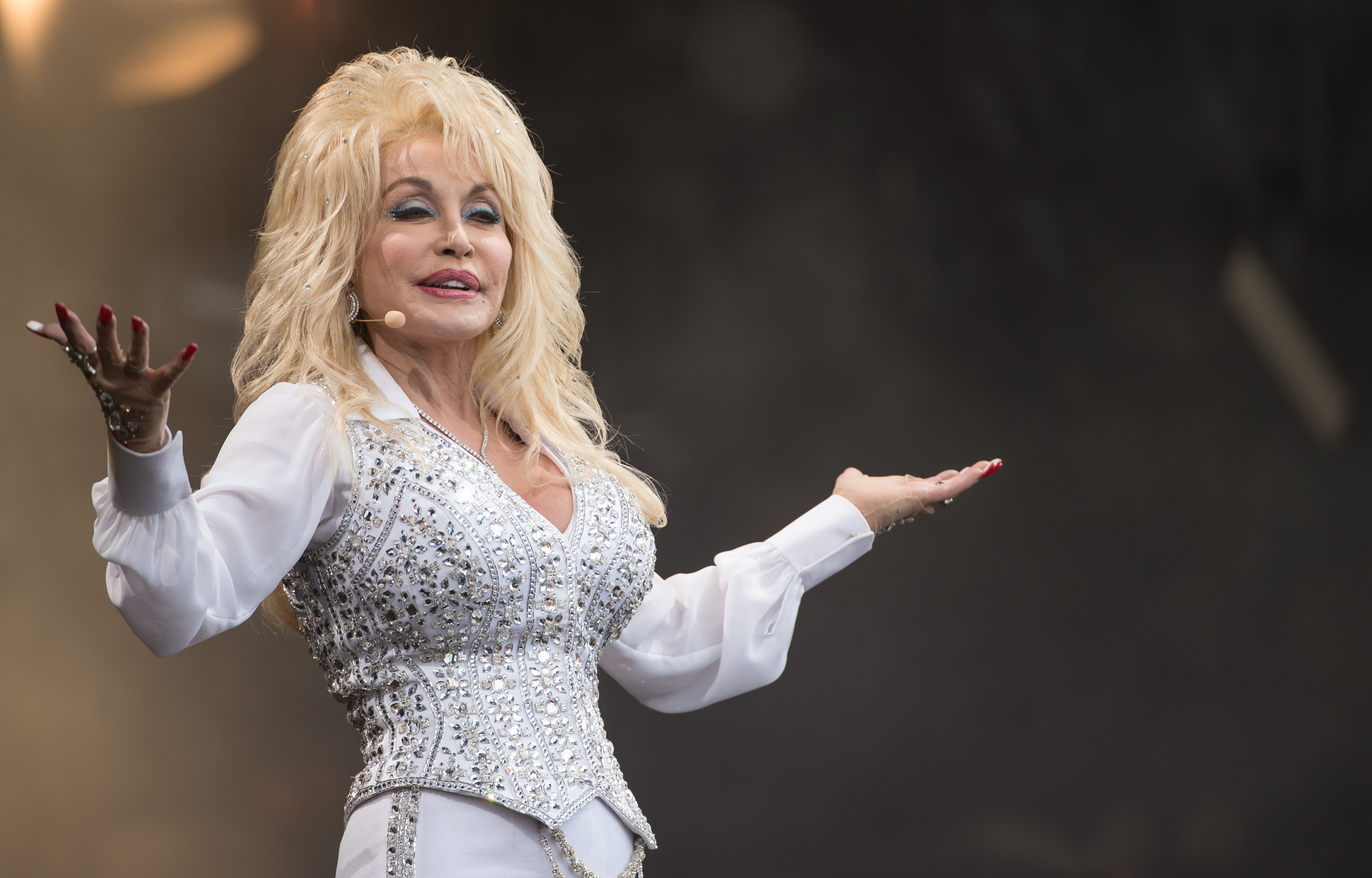
How Dolly Parton Overcame Her Shyness to Become a Star
Dolly Parton has always loved to sing—from the moment she could talk. But when she got her first chance to sing live in front of a real audience, she had some serious nerves. But that day, backstage, she made a life-changing realization.
Dolly Parton got her first break on ‘The Cas Walker Show’
When Parton’s Uncle Bill (who was also a musician) realized his niece was so passionate about music, he started taking her around town to audition for different performance opportunities. She got the chance to meet Cas Walker, of The Cas Walker Show. From their first meeting, Parton left a lasting impression.
“I stood there about on the level with his belt buckle, which seemed to a poor kid from the hills to be a thing of almost unimaginable richness, looking up at Cas in his starched white shirt,” Parton wrote in her first memoir, Dolly: My Life and Other Unfinished Business. “He said hello and then kind of ‘garumped’ as if I should say something. I choked back my butterflies and finally managed to say, ‘Mr. Walker, I want to work for you.’”
Walker shook Parton’s hand and said, “Well, you’ve got a job. A lot of people come to me and say, Mr. Walker, I want a job, but you said I want to work for you. You’re hired because you’re the first one that ever wanted to work.”
So began the “Coat of Many Colors” singer’s career as a professional singer.
Parton was nervous for her first performance
Parton worked for Walker by singing on the radio. The show was broadcast from an auditorium at the local radio station, WIVK Knoxville. The room fit about sixty people, so when it came time to record, a crowd of about that size would file in to watch the performance. The first time the “Jolene” singer prepared to sing, she really felt her nerves.
“I stood there backstage with my Uncle Bill, trying to breathe,” she wrote. “It’s funny how when you’re nervous even normal bodily functions require worry and effort.”
As she waited backstage, Parton made a life-changing realization.
“It was at that very moment that everything came to a head for me as a performer,” she wrote. “My insecurity came face-to-face with my ambition. My shyness banged head-on into my need for attention. This was what I had always wanted, and yet there was this fear. I’m not quite sure if it was the fear of failure or of success. Maybe it was both. I was either going to do this thing, and do it for the rest of my life, or not at all.”
The performance
When it was Parton’s turn to perform, she braced herself and walked onstage. When she sang, her voice was thin and tentative. But as she got going, she relaxed into how she sang at home to her family’s chickens and dogs. She sang passionately and with abandon.
“I sang as if it would be my only chance ever to sing for a crowd like this or on the radio,” she wrote. “For all I knew, it could be.”
When she finished, the crowd erupted in applause and hollers. To Parton, the cheering sounded like “Yes, Dolly, we love you!”
It was then that Parton “fell in love with the public.”
“This was what I had always wanted—no, needed,” she wrote. “It was the attention I had longed for. I knew what they were giving me. Now I had confidence in what I had to give them.”


